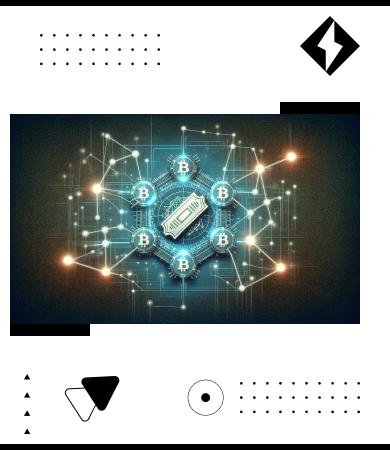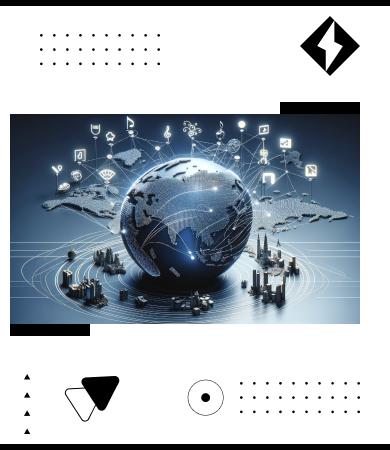Support center +91 97257 89197
Event Marketplace DevelopmentMay 7, 2024
The Role of NFTs in Digital Ownership and Engagement in Events

Introduction
The digital revolution continues to redefine our experience of events, from concerts to conferences, and Non-Fungible Tokens (NFTs) are at the forefront of this transformation. NFTs not only challenge our traditional concepts of ownership but also significantly enhance how attendees interact and engage with events. This blog explores how NFTs are being used to innovate in the realm of event management and engagement, creating unforgettable experiences and robust systems of digital ownership.
The Basics of NFTs
At their core, NFTs are digital assets that represent ownership of a unique item or piece of content on the blockchain, a digital ledger that is incorruptible, decentralized, and secure. Unlike cryptocurrencies like Bitcoin or Ethereum, which are fungible, meaning each unit is the same as every other unit, NFTs are one-of-a-kind. This uniqueness and the security provided by the blockchain make NFTs an ideal tool for transforming event management and engagement.
What Makes NFTs Different?
NFTs are different from traditional digital assets in several key ways:
- Indivisibility: NFTs cannot be divided into smaller units. You either own the token in its entirety or you don’t own it at all.
- Provenance: Thanks to blockchain technology, the origin and entire history of an NFT, including past ownership, can be tracked.
- Interoperability: NFTs can be used across different platforms and ecosystems, thanks to the standardized nature of most NFT protocols on blockchains like Ethereum.
NFTs in Event Management
One of the most straightforward applications of NFTs in the event space is digital ticketing. By utilizing NFTs, event organizers can curb common problems such as ticket fraud and unauthorized scalping. Moreover, NFT tickets can be programmed to include metadata or embedded licenses that specify the terms under which they can be sold or transferred, potentially giving organizers a percentage of secondary market sales.
Case Studies
Several high-profile events have successfully incorporated NFTs:
- Music Concerts: Some artists have begun to issue concert tickets as NFTs, which can include exclusive content, early access to future ticket sales, and memorabilia.
- Sports Events: Major sports leagues have explored NFTs not just for ticketing but also for collectibles and fan engagement through digital trading cards with varying degrees of rarity and value.
Enhancing Engagement Through NFTs
Beyond ticketing, NFTs are leveraged to enhance attendee engagement:
- Exclusive Access and Perks: NFTs can grant special privileges, like backstage passes, meet-and-greets, and premium seating areas.
- Gamification: By integrating NFTs, events can create interactive, gamified experiences that reward attendees. For example, attendees can earn NFTs that unlock special content or experiences by participating in event activities.
NFTs represent a paradigm shift in how we think about and interact with events. They offer enhanced security, unique engagement opportunities, and a novel way of handling and asserting ownership over digital assets. However, they also come with challenges such as technical complexity, legal issues, and the need for public education on their benefits and operation.
Engagement Examples
- A VR concert where attendees collected NFTs usable within the VR environment or tradable on external platforms.
- A tech conference that allowed participants to use NFTs for interactive activities like voting on session topics or accessing special content.
Challenges and Considerations
Implementing NFTs isn't without challenges. These include technical complexity, legal and regulatory uncertainties, and the need for public education on their benefits and functionality.
Legal and Ethical Considerations
The integration of NFTs raises questions about consumer protection, data privacy, and intellectual property rights. Navigating these legal landscapes is crucial for event organizers to avoid potential liabilities.
Technical Challenges
The adoption of NFTs requires robust technological infrastructure and a certain level of digital literacy among participants and organizers. Additionally, issues related to scalability and environmental impact of blockchain technology need to be addressed to ensure sustainable practices.
Future Prospects
The future of NFTs in the event industry looks promising with potential trends focusing on hybrid events, increased personalization, and sustainability. As technology advances and awareness grows, NFTs are poised to offer even more innovative solutions that enrich both the attendee experience and event management.
Conclusion
NFTs offer exciting new possibilities for event organizers and attendees alike, enhancing security, engagement, and ownership in digital spaces. While challenges remain, the potential for NFTs to revolutionize the event industry is immense, promising a future where events are more interactive, personalized, and secure.
Call to Action
For event organizers and participants eager to explore the cutting edge of engagement and technology, embracing NFTs could unlock a host of benefits and opportunities. Consider how integrating NFTs can transform your next event into a dynamic and unforgettable experience.
TLDR
This blog explores the transformative role of Non-Fungible Tokens (NFTs) in the event industry, highlighting how they enhance digital ownership and engagement. NFTs serve as secure, unique digital assets that can be used for ticketing, providing exclusive access, and creating interactive experiences at events. They offer benefits such as increased security, added value, and interactive engagement opportunities. However, challenges such as technical complexity, legal issues, and market volatility also need to be navigated. Looking forward, NFTs are poised to revolutionize event experiences, making them more interactive, personalized, and secure through innovative blockchain technology.
FAQs
Non-Fungible Tokens (NFTs) are unique digital assets that represent ownership of a specific item or piece of content on the blockchain. In the context of events, NFTs can be used in various ways, including as digital tickets, which provide proof of purchase that is verifiable and cannot be duplicated. They can also represent VIP passes, access to exclusive areas, or rights to digital merchandise. The use of NFTs ensures that tickets are secure and transferable in a controlled environment, adding a layer of security against fraud and counterfeiting.
NFTs offer several advantages over traditional paper or digital tickets: • Security and Authenticity: Each NFT is tied to a blockchain, making it nearly impossible to forge or duplicate. • Enhanced Experience: NFTs can include additional perks, like backstage passes, autographs, or exclusive digital content, enhancing the event experience. • Resale Control: Event organizers can program NFTs to allow or restrict resale, and they can earn a percentage of sales through smart contracts. • Engagement and Loyalty Programs: NFTs can be integrated into wider loyalty programs, offering rewards that encourage ongoing engagement.
NFTs can significantly enhance audience engagement by: • Gamification: Integrating game-like elements where attendees can earn rewards, upgrades, or exclusive content through NFTs. • Interactive Experiences: Providing interactive experiences that can be unlocked only through NFT ownership, like augmented reality features, scavenger hunts, and more. • Community Building: Creating a sense of community among event attendees by offering NFT-based memberships that offer continuous benefits and exclusive community access.
While NFTs bring many benefits, they also come with challenges: • Technical Complexity: Implementing NFTs requires technological infrastructure and a level of digital literacy from both organizers and participants. • Legal and Regulatory Uncertainties: The legal framework around NFTs is still developing, which may pose challenges in terms of compliance, especially across different jurisdictions. • Market Volatility: The value of NFTs can be highly volatile, which might affect pricing strategies and resale values. • Public Perception: As NFTs are a relatively new concept, there might be skepticism or resistance from traditional event-goers.
Work with us







